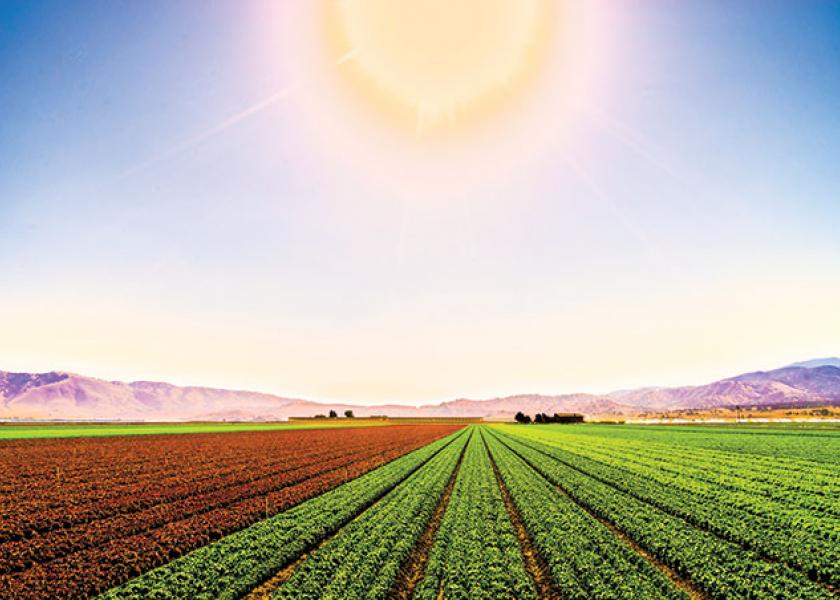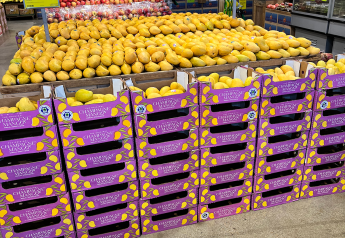Organic going strong among Salinas growers

It’s hard to say what, if any, impact COVID-19 will have on sales of organic vegetables, but growers in California’s Salinas Valley tend to remain optimistic.
“We do tons of organic,” said Gib Papazian, president of Lucky Strike Farms, Burlingame, Calif.
The company has a relationship with Cal-Organic Farms, a division of Bakersfield, Calif.-based Grimmway Farms, with whom Lucky Strike has worked since 1983.
Up to 20% of the company’s product line is organic, and the percentage goes up every year, he said.
Some of the most popular organic items are beets, cilantro, leaf lettuces — but not iceberg — and romaine hearts.
The company has some organic potatoes.
Lucky Strike Farms deals with small- and medium-size chains throughout the country, Papazian said.
In early April, he said organic business was “down in some spots,” but he remained positive.
“For the most part, organic produce will continue to be a growth industry,” he said. “There will always be more demand for it.”
Ocean Mist Farms, Castroville, Calif., has a line of about 20 organic cooking vegetables, said Diana McClean, senior director of marketing.
The company grows organically in Castroville, Coachella and Huron, Calif., at different times of the year.
By early May, Ocean Mist Farms’ organic production will include artichokes, fennel, baby bok choy, red beets, broccoli, celery, iceberg lettuce, spinach, cauliflower and specialty vegetables.
The complete product line is represented on a daily price sheet, she said.
The company has been growing organically since 2000 and launched the Ocean Mist Organic brand in the summer of 2015.
Organics now account for 5% to 10% of Ocean Mist Farms’ production, McClean said.
Organic offerings from Gonzalez, Calif.-based Misionero Vegetables LLC include salads, lettuces and vegetables including Brussels sprouts, green beans, sugar snap peas and a variety of squash, said Nicole Zapata, marketing manager.
Misionero has offered organic produce in the salad category since 1997 through its Earth Greens label.
“In 2011, we began offering organic vegetables in our Green Wave Farms label,” she said.
The majority of the company’s products are organically grown.
There were “dramatic increases” in volume during the first few years of the organic program at Ocean Mist Farms, McClean said, and though the rate of growth may have slowed a bit, volume continues to increase, based on demand.
“We’ve seen significant growth over the last three years,” she said.
McClean expects that growth to continue as the company transitions fields from conventional to organic production in each growing region.
“It continues to grow at a steady pace, but it has not overtaken conventional,” she said.
There is not always a big gap between organic and conventional pricing.
“There are times during the production cycle when the price variation is not as dramatic as other times,” she said. “Because of this, organic and conventional items can be similarly priced on the shelf.”
As demand grows, producers continue to produce, supplies become less scarce, and “pricing at the shelf will reflect that,” she said.
Papazian of Lucky Strike said it makes sense to grow organically.
“No one wants to use pesticides if they can avoid it,” he said. “We try to make it as safe as humanly possible and still have yields that make sense.”
Chemicals are expensive, difficult to work with, and they’re something nobody wants to deal with, he said.
However, at least small amounts are needed to efficiently produce certain items.
“As an industry, if we could feed America and grow everything organically from seed to harvest that would be anywhere in line with growing conventionally, of course we would do it,” he said.
“You only use (pesticides and herbicides) when you have to.”







